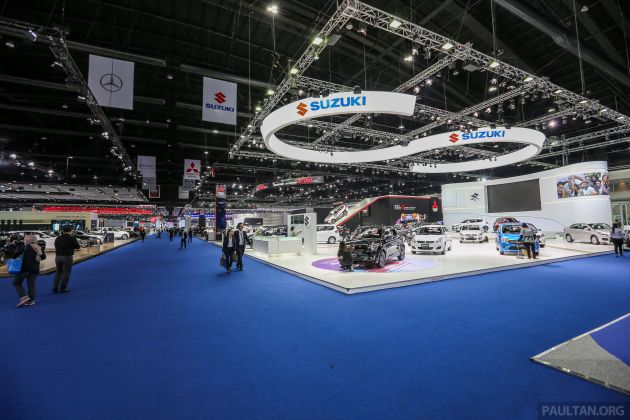Thailand continues plans to announce vehicle trade-in scheme, aiming to steer buyers towards adopting EVs
Thailand is continuing with its plan to introduce a trade-in scheme to stimulate new car sales in the country, which has been significantly impacted due to the Covid-19 pandemic. Discussions about the programme – which was first mooted in August – is still ongoing, but industry minister Suriya Jungrungreangkit says the goverment is hoping to announce the scheme before the year is out.
The office of industrial economics is working on the details of the plan, and the matter is scheduled to be tabled for discussion at the Center for Economic Administration Situation meeting that will take place on December 2, the Bangkok Post reports.
The programme is proposing the introduction of trade-in coupons worth 100,000 baht (RM13,440) each to individual car owners, who can also use their expense to reduce tax. Only owners of cars older than 10 years will be able to qualify for the scheme.
Suriya said it has not been determined whether the trade-in will focus on electric vehicles (EVs), but stated that EVs were becoming the trend and will become the future of cars. He said that he expects that energy minister Supattanapong Punmeechaow, who chairs the national electric vehicle policy committee, to announce the trade-in scheme at the end of the year.
It was previously reported that the trade-in scheme, which will run for five years, will be open to all types of car models, including EVs. A big factor for promoting sales of EVs is they can help reduce air pollutants, especially PM2.5 ultra-fine dust particles. According to the nation’s land transport department, the country has about three million cars registered that have been in use for over 15 years, and the eventual aim is also to reduce pollution from these with the switch to newer, more efficient vehicles.
However, industry observers are less optimistic about the take up for EVs in the proposed plan. In an earlier report by the publication, the industry cautioned that a predominant focus on EVs in the plan could result in sluggish response. The Federation of Thai Industries (FTI) disagreed with the possibility of the government using the scheme to promote EVs because these vehicles are mostly imported from abroad, which made them expensive.
The federation’s vice-chairman, Surapong Paisitpatanapong, said that at present, EVs are bought only by a specific group of customers. “When considering the purchasing power of people domestically, we found most of them want to buy cars worth no more than 800,000 baht,” he said. He added that the charging network infrastructure is also not ready across the country
Some automakers have also voiced their concern about making EVs the focus. Pongsak Lertruedeewattanavong, vice-president of MG Sales Thailand, said that most of the local output centres on vehicles powered by internal combustion engines (ICE), and that without clear details and conditions, buyers may hold off and purchase nothing. “We agree with the idea, but the government needs to clarify it,” he said.
This sentiment was echoed by the FTI, which supports the trade-in scheme as a means to drive sales for car companies and auto parts makers. However, Surapong said that support must go to domestic producers who are suffering from the pandemic’s impact, especially SMEs that supply auto parts to car factories.
The government has stated its intent to increase EV production to 30% of the country’s total industry volume (TiV) by 2030, or around 750,000 EVs out of 2.5 total million units that will be produced annually then.
Thailand has already announced that it is looking to reduce the prices of EVs to bring them closer to ICE cars by reducing the import duty on automotive parts used to assemble EVs in the country. Also, its Board of Investment (BoI) has approved a new privilege package for EV makers following the expiration of the previous package from 2018. The new deal includes a three-year tax holiday for manufacturers of plug-in hybrid vehicles and a maximum eight-year corporate income tax waiver for makers of full EVs.
However, all these positives will take time to implement, and it remains to be seen how the current scheme will shape up with all this in mind. The industry ministry said it plans to discuss the scheme with the finance ministry as well as carmakers to gather their views and comments.
The post Thailand continues plans to announce vehicle trade-in scheme, aiming to steer buyers towards adopting EVs appeared first on Paul Tan's Automotive News.
from Paul Tan's Automotive News
Read The Rest:paultan...






Post a Comment